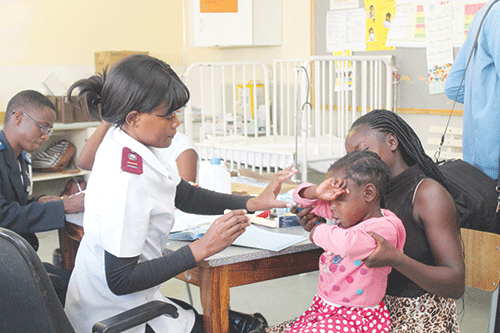The National Council standing committee on health, social welfare and labour affairs recommended that the health ministry benchmarks and emulates Kenya’s Linda Mama model to enhance the Namibian maternal homes’ concept.
The Linda Mama concept refers to a maternal healthcare programme in Kenya which aims to provide pregnant women with access to quality healthcare services before, during and after childbirth.
It targets low-income women, and typically includes services such as antenatal care, delivery services, post-natal care and essential supplies like maternity kits, all aimed at reducing maternal and infant mortality rates. This recommendation follows a study visit to the Parliament of the Republic of Kenya, where the committee gained insights into Kenya’s commitment to Universal Health Coverage (UHC).
UHC, defined by the World Health Organisation (WHO) as a healthcare system aiming to provide all people and communities with access to essential health services without facing financial hardships, is a goal Kenya has been pursuing through various reforms and initiatives.
“The primary objective was to draw comparisons with its operations and best- practices,” said the chairperson of the committee, Linekela Nambondi.
Other topics of deliberation included child labour, social grants and unemployment, addressing shared challenges and potential solutions in both countries.
Same difference
While the MPs are impressed by the Linda Mama concept, the executive director in the ministry of health Ben Nangombe pointed out that public health services in Namibia are also free.
“If a patient comes to our facilities and is unable to pay for the services, they are not chased away; they receive the services nonetheless,” he noted.
These services extend to both antenatal and post-natal care, including the provision of diapers and formula milk.
“Perhaps what is lacking is the provision of specific items, but in terms of services per se such as medical examinations, provision of pharmaceuticals, or even surgical procedures or counselling, these services are free,” he elaborated. In terms of achieving UHC, Nangombe stated that the country is moving towards that goal, and has achieved 70%-80% of the scoring criteria put in place by the WHO.
“But that doesn’t mean we are there yet. We are still putting in place mechanisms to achieve universal health coverage. We have engaged different stakeholders, including medical aid funds, the private health sector, academia, the business sector, members of parliament and communities,” he added.
Rather than isolating the concept, Nangombe emphasised that UHC should be defined based on how Namibians envision it.
“That is why consultative meetings are ongoing,” he said.
Last year, Cabinet urged the ministry of health to spearhead the development of the UHC framework.
The Popular Democratic Movement (PDM)’s shadow minister of health Winnie Moongo reiterated Nangombe’s comment on health services being essentially free in the country.
However, she acknowledged that Kenya is ahead of Namibia in terms of UHC.
“While the Linda Mama concept has proven effective in Kenya, I am sceptical about its immediate applicability in Namibia ,given the current state of our public health sector,” she observed.
Moongo said the country faces severe challenges, including infrastructure issues, shortages of medical equipment, and a lack of specialist medical personnel.
Therefore, implementing the Linda Mama concept would require a well-functioning healthcare system, which the currently lacks, she added. “The public health sector is grappling with significant challenges such as overwhelmed maternity wards, a shortage of beds, and inadequate delivery rooms, particularly in regions like Khomas, where there are only two state maternity wards,” Moongo said. Last year, the National Assembly’s standing committee on gender equality, social development and family affairs said the public health sector is in crisis state.
“It is crucial to address the existing issues first. Namibia needs political will, and a committed leadership to fix the dilapidated health infrastructure and combat corruption within the ministry, which hampers progress,” stated Moongo.


